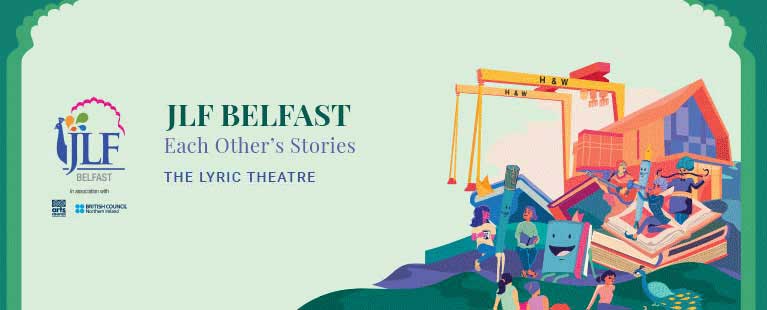

Wordscapes: Latinx Voices
It was nothing short of a miracle, Kristie Soares noted, that this conversation at the Boulder Public Library on Latinx Voices was even happening. First of all, these three scholars, Dr. Kristie Soares, Dr. Natalie Avalos, and Dr. Arturo J. Aldama, who are each from various Latinx and Native American backgrounds, were the first ones in their families to haveearned PhDs and won tenured academic positions. Second, these three had been invited to JLF Colorado 2019 to speak to the issues they had raised – issues the current culture works to keep hidden.
It’s an “interesting” time to be alive, this year of 2019, Dr. Arturo Aldama noted, with the abundance of toxic violence against asylum seekers, white male supremacy, and damaging policies handed down from those in positions of power. Arturo began the session by reminding the audiencethat this was not a new phenomenon. In the 1850s, in New York City, the Irish fleeing the potato famine were demonized by a“nativism” movement –a group that soughtto protect their own rights and wealth by negatively labeling any Irishentering the country or already inhabiting the land as undesirable.
Dr. Natalie Avalos is of Chicano and Native American descentand became a Tibetan Buddhist early in her life. Exposed to her own and the Tibetan refugee culture, she noted the common themes of colonial dispossession and oppression, and how these are worryingly repeatedin different countries across the globe. She cited the example of what’s happening in the Dominican Republic where black Dominicans are being stripped of their land rights because of their Haitian (black) descent in an attempt to “de-territorialize” them. “The government states if you’re black, you’re not Dominican and invalidates yourland claims and birth certificates,” said Avalos. “We see it in the U.S. with the idea that if you are Mexican, you’re not American. Similar things are happening in Puerto Rico, and in the borders of Palestine and Kashmir.”
Dr. Kristie Soares is of Cuban descent, grew up queer in Miami, and is a scholar of media, pop culture and 19th and 20th century Latinx literature. She is also a performance artist who seeks to undo the damage done to people of color by the anti-black discourse that portrays them as inferior, less intelligent, and inherently violent. To fight and change this dynamic, there is a macro and micro fight. The macro side looks at the bigger themes such as global power structures, and how capitalism creates this polarization in order to protect theinterests of the wealthy. The micro side involves steps such as “how to love the black body”. She noted that today there is no independent media, and that any TV showwhich portraysLatinx culture must be approved by companies highly controlled by the white men in charge.
Colonialism, racialism, capitalism - they are all a means to an end. Avalos shared Andrea White’swork of the three ways by which white supremacy is perpetuated: 1) genocide, 2) slavery, and 3) incarceration. These are means to an end.Slavery provides free labor. Genocide erases rights and land claims. Incarceration, a huge growth industry since the 80s, suppresses unruly populations and erases voting rights. With ICE (US Immigration and Customs Enforcement), we see all of this in evidence today.
The audience questions started with one participant asking, “How can we even believe this is changeable?” Dr. Avalos shared the conversation she had had with her father, who had said, “The U.S. project will live and die racist.”He didn’t see the status quo ever changing. Avalos feels we need to “envision an entirely different project.What would an equitable project look like?”There was so much more to learn, and Dr. Aldama invitedthose interested to contact the Department of Ethnic Studies at the Colorado University in Boulder for more information and resources. This session might have been a miracle but it was surely an engaging and thought-provoking one for all those who attended.

Leave a comment